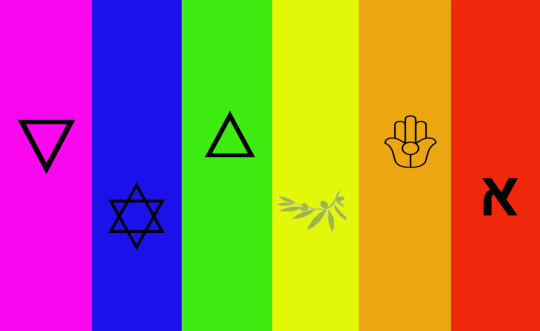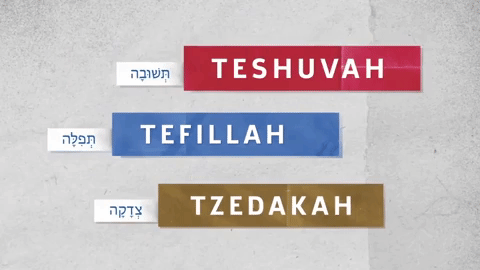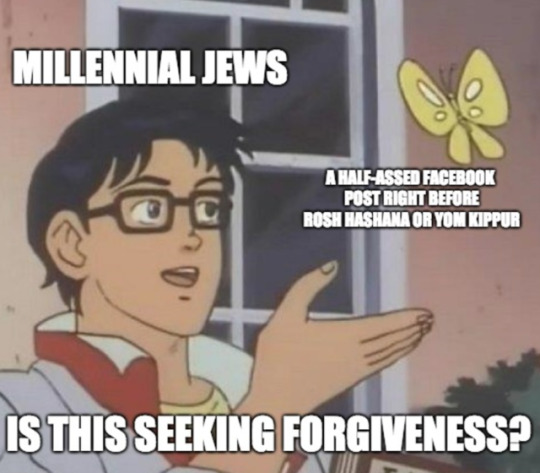Don't wanna be here? Send us removal request.
Photo

My first go. For sure not a final draft. A flag for Jewish gender diversity. Each color stands for one of the 6 genders listed in the Talmud. A. The Aleph ( א) stands for Androgynos (androgynous). It also stands for Adamah which means earth, and comes from the word dam which means blood (red). It is the first letter in the name adam which means earthling. Adam according to the talmud had both sexes and was an androgynos. Aleph is also the first letter of the alphabet so I put it on the far right where Hebrew begins B. The Hamsa upright is for protection (other way around is for abundance) and it is for Aylonit, or feminine person that takes on masculine characteristics. It is also a symbol which connects all middle eastern and north African peoples C. The olive branch is for the Saris or masculine individual who takes on feminine characteristics, in the torah it is said that a saris is not "a dry tree" so I chose here to show a branch fruitful with peace and abundance. D. the upright triangle is for Zachar meaning masculine, it comes from the word zachor meaning memory or name (like on a family tree) so it is green to denote a tree E. The purple triangle is for Nekivah or feminine but it is also reminiscent of the Holocaust (pink triangle which LGBT people were forced to wear) a trauma all Jewish people share with all LGBT people. By shading it purple I reclaim it as a bridge color between man and woman, Jew and gentile, blue, and red F. The star of David is for Tumtum or for one who is neither masculine nor feminine. It is a combination of both triangles. The talmud tells us that Sarah and Abraham were born Tumtums and it is their line with which all Jewish people trace themselves according to legend.
#jewish#gender diversity talmud androgynos tumtum saris adam adamah pride LGBT LGBTQ Aylonit#gender#diversity#aylonit#androgynos#saris#tumtum#pride#pride month#talmud#lgbt#lgbtq#flag
92 notes
·
View notes
Text
I don’t think I’ve seen an answer to the question of how close or far apart the things happening today (”send her back”, detention centers etc) are to the nazis quite as good or thorough as this answer on quora
45K notes
·
View notes
Text
Judaism emerged as an answer to a series of questions: How can finite human beings be connected to an infinite God? How can they be connected to one another? How can there be co-operation, collaboration, collective action, families, communities, and a nation, without the coercive use of power? How can we form relationships of trust? How can we redeem the human person from his or her solitude? How can we create collective liberty such that my freedom is not bought at the cost of yours? The answer is: through words, words that communicate, words that bind, words that honour the Divine Other and the human other. Lashon hara, “evil speech,” by poisoning language, destroys the very basis of the Judaic vision. When we speak disparagingly of others, we diminish them, we diminish ourselves, and we damage the very ecology of freedom.
Rabbi Jonathan Sacks
184 notes
·
View notes
Text
*releases pack of dads into home depot* go……be free
989K notes
·
View notes
Photo

Shekhina Pray for us now bound with scripture and shielded with shawl Armed with passion and loving care Pray for us now against suffering, turmoil, and injustice Pray for us now against the chaos of the dark.
-Leonard Nimoy
71 notes
·
View notes
Video
youtube
All Genders Wrap
All Genders Wrap is a series of tutorial videos with a cast of a diverse group of Jews of all genders demonstrating how to wrap tefillin. The video above shows right handers wrapping in an Ashkenazi style.
This video shows two Sephardi-style variations for right handers:
youtube
This video shows left handers wrapping in an Ashkenazi style:
youtube
2K notes
·
View notes
Photo



Reblog Jewish Superman for good luck and to make a Jewish person feel safe!
13K notes
·
View notes
Text
So You Want to Observe the Days of Awe
This post is for people who are Jewish, converting to Jewish, seriously interested in Jewish conversion, or are Jewish-Adjacent (part of an interfaith family, etc.). It is **not** for gentiles who wish to “deepen their connection to Jesus” or any similar reason uninvolved with genuine interest in becoming a part of the tribe or participating with loved ones, as that is a form of cultural appropriation. Thank you for your understanding. Gentiles CAN, however, reblog!
So you know how to celebrate Rosh Hashanah. You know the ten days between Rosh and Yom Kippur are still important, even if they aren’t the main holidays. And you want to do something to mark time passing. Boy, am I here for you!
Educate Yourself on what the Days of Awe Are
The Days of Awe are the Ten Days between (and including) Rosh Hashanah (ראש השנה) and Yom Kippur (יום כפור)
They are called the Yamim Noraim (ימים נוראים) in Hebrew
The days that aren’t Rosh Hashanah and Yom Kippur are sort of the “intermediate” Days of Awe
But that doesn’t mean they aren’t still important
Some include the entire month of Elul with this period in a term called the 40 Days of Repentance (but I decided to start this series after Elul, so y’all are just going to have to wait for next Elul for my Elul-specific post)
You can also call these the 10 Days of Repentance, if you choose
The Days of Awe are typically a period of enhanced teshuvah, introspection, and awareness of HaShem
They celebrate the anniversary of Creation and HaShem making decisions about how the coming year will go
The common idea is that on Rosh Hashanah, HaShem opens the book of life, where HaShem inscribes people for life, blots out the names of really bad people, and the intermediaries (ie: almost everyone) spend these ten days trying to repent, return (teshuvah) to HaShem, and do typical “crap time has passed I should be better” stuff
The Book of Life is then sealed on Yom Kippur (though, in theory, you have another chance at Sukkot, but more on that later)
So, even though Rosh Hashanah and Yom Kippur are the big days, the intermediate days are important too, because these are the days of high-powered teshuvah
There’s also a lot of eating of food, studying of texts, davening, and counting of luck, like Rosh Hashanah, but I’m not making this post a repeat of my RH post 😛
There is a lot more to learn about this period - don’t just stop here! These are just the basics
We greet each other with “Shana Tova” meaning A Good Year (to you), but sometimes people begin to transition to “G’mar Hatima Tova” or “G’mar Tov” (May You Be Sealed in the Book of Life) as Yom Kippur nears. You can also wish people an easy fast, since Yom Kippur is the most widely-observed fast amongst Jewish people
On days that aren’t Shabbat, Rosh Hashanah, or Yom Kippur, you can work. Don’t jeopardize your livelihood for teshuvah, please. If you get those days off regardless, though, more power to you.
Try to take some time to Daven
There are three acts to attempt to sway HaShem’s decree on Rosh Hashanah: Teshuvah, Tefillah, and Tzedakah (Returning/Repentance, Davening/Prayer, and Charity/The Necessity of Helping Others)
So let’s talk about the middle one first because why not
Davening, or the rough equivalent of prayer in Judaism, is vital to the Yamim Noraim
There are special portions inserted into the regular service - including the Amidah. Follow your siddur (prayerbook)’s directions, if you need to
Sacharit is the morning prayer service (including many blessings for waking up and existing, and praise for HaShem); Mincha is the afternoon prayer service (the shortest one, it doesn’t have the Sh’ma); Maariv is the evening prayer service (in the middle, it doesn’t have as many words of praise, but does include the Sh’ma)
You can also try and include more blessings than you usually do in your day, including blessings after meals (benching) and blessings for varying types of foods you eat (which are said beforehand)
The point of all of this is to try and be mindful, to have your mind open to HaShem. So if you don’t want to follow a traditional davening order, you can also meditate, go outside, spend time amongst nature and with your thoughts
Introspection is important for this time period. Though a lot of that will be Teshuvah (see below), there’s also just general looking at yourself, your past year, and how you want the new year to be.
What would you like to accomplish?
What would you like to let go of?
What are things in yourself you’d like to change?
What are things you’d like to stay the same?
Who have you lost contact with, and you’d like to get in touch with again?
Who do you need to remove from your life, for it to be healthier?
How do you want to deepen your connection to Judaism and/or HaShem?
Try to keep HaShem, teshuvah, and the spirit of the time in your thoughts throughout the day - and a good way is davening
You can daven without a minyan (group of 10+ Jewish adults (sometimes only men count), but in some traditions you can’t say certain prayers (such as the baruch’u) - look into local synagogues and see if they offer minyan services
Mark Shabbat Shuvah
The Shabbat between Rosh Hashanah and Yom Kippur is a very special shabbat, given its own name - Shabbat Shuvah
This literally means the Sabbath of Return
You can also call it Shabbat T’Shuvah (Sabbath of…. Return/Repentance)
This is a Shabbat marked by increased solemnity, thinking about teshuvah, and considering the coming year
The themes are the same as all the Yamim Noraim, but it’s a good day to pay special attention - if you work on teshuvah, tefillah, & tzedakah only one intermediate day, this is the day to do it
Read and study traditional texts!
The Torah reading kind of depends on how the year is structured in general, it isn’t always one thing or another. Use the internet to find out what the parsha is in a particular year - this year (5779) it’s Vayeilech (Deut. 31:1 - 31:30), last year (5778) it was Ha’Azinu (Deut. 32:1 - 32:52). It just depends.
The Haftarah (Prophets/Nevi’im) reading, however, stays constant
Ashkenazi tradition reads Hosea 14:2 - 10, and Joel 2:15 - 27
Sephardic tradition reads Hosea 14:2 - 10, and Micah 7:18 - 20
If you wish, you can study all three
You also can study the Haftarah that goes with the Parsha in question if it’s not on Shabbat Shuva
This is moderately unorthodox, and if you have limited time focus instead on the traditional Shabbat Shuva Haftarot
For Vayeilech, the Haftarah is Isaiah 55:6 - 56:8
For Ha’Azinu, the Haftarah is II Samuel 22:1 - 22:51
It’s really up to you, but traditional texts are studied for a reason - try to contemplate what they’re saying about the season of return
Try to go to Shabbat services - almost all synagogues will have them Friday night & Saturday morning, and unlike High Holy Day services, you don’t need a ticket (usually)
This is a solemn Shabbat. Make it solemn for you.
This isn’t my Shabbat post, so I’m not going to talk about how to observe Shabbat (or different ways to do so)
Just try to spend the day thinking about the previous chag (Rosh Hashanah), and the upcoming one (Yom Kippur), and the themes of the ten days in general
Have I Talked About Teshuvah Yet

Teshuvah is the theme of the season, and every day of the Yamim Noraim are days to practice it
The steps of Teshuvah are as follows:
1. Regret what you have done
2. Abandon these practices (if you haven’t already)
3. Confess and apologise for what you have done to the appropriate parties (a person, if you have wronged them; HaShem, if you have wronged HaShem, or you know, both - but don’t skip apologising to a person)
4. Resolve & Commit to acting better
Sometimes, you can’t get forgiveness. And that’s okay. You have done everything you can - as long as you commit to returning to the right path of behavior, and attempt to rectify what you’ve done
Sometimes, you can’t even ask for forgiveness, depending on the circumstance. Be sure to think about what that means for you - how that impacts your teshuvah. What can you do to make up for it? How can you rectify your behavior?
It’s not enough to just apologize. You have to try and make it right. You have to try and repair the world (tikkun olam)
Teshuvah is an extraordinarily personal process. I can’t make too many sweeping declarations.
Sometimes, teshuvah involves taking care of yourself
If you have mental or physical illness, or a rough year in general, or anything else that seriously impairs your ability to do teshuvah, do teshuvah to yourself
Self-care is a valid method of returning, imo. You can think differently, but it’s too easy to be too hard on yourself - especially for people with mental illness - this season.
There is no intermediary in Judaism. A rabbi can not ask HaShem for forgiveness for your sins against HaShem; HaShem cannot forgive you for sins against a person. You have to go directly to whom you have harmed (including, in many cases, yourself), try to rectify it, and ask for forgiveness. And you are not owed that forgiveness either.
If someone asks you for forgiveness, consider your own teshuvah
Will forgiving someone who has wronged you help you to take care of yourself? Be a better person? Help you to move on?
Or will it reopen a wound, and hurt you even further?
I can’t tell you the answer to this question. Only you can.
It’s a mitzvah to forgive someone, but it’s not a mitzvah to hurt yourself. Find a balance.
Give Tzedakah
Apart from Rosh Hashanah, Shabbat, and Yom Kippur, you can give tzedakah freely on the Yamim Noraim - and you should!
Tzedakah is often translated as “charity”, but it doesn’t really line up with that
Charity, in Xtianity, is seen as optional - that you’re doing a nice, good thing, but voluntarily
Tzedakah, however, is mandatory
There are hierarchies of tzedakah, but this isn’t my tzedakah post, so I’m not going to go too into them - just know that even giving begrudgingly and as little as you can is fulfillment of the mitzvah
However, the mitzvah is heightened the more you commit to it. The highest step of the scale is giving an individual the ability to take care of themself, and to not rely on tzedakah any longer
Many communities and synagogues take up collections - both of money and of food - during the Yamim Noraim. Look into those as ways to fulfill this mitzvah
You can also donate money to causes and groups you care about
Consider ones that aid particularly “hot button” issues (such as the separation of immigrant families, or the prison strike)
Groups that aid the Jewish people are also particularly poignant this time of year
I can’t dictate to you how to fulfill this mitzvah; you alone know what you care about enough to give money to
Even the poorest should give tzedakah
If someone receives tzedakah, they must give some of that as tzedakah in turn
Even if you are the worst off person in the world (which, doubt), you can always help others
HaShem is understanding, of course, but this is a season of returning. Do what you can.
It is not a mitzvah to render yourself destitute
You should give tzedakah, but only according to your means
Giving so much tzedakah that you require tzedakah yourself as a result is literally the opposite of a mitzvah
Give, but only give what you can
You can (and should!) also do other acts of tikkun olam, such as volunteering, but nothing really takes the place of giving money or material goods to people who desperately need them

Don’t Act Like On Normal Days
These are important, highly spiritually charged days. Don’t treat them just like any other.
Besides Teshuvah, Tefillah, and Tzedakah, consider marking the days in other ways
Study religious texts
The stories of Genesis are particularly poignant, given that Rosh Hashanah marks the universe’s “birthday”
Reading the writings of the prophets, which describe tikkun olam extensively
Study the texts in Numbers that describe this time of year
There are also psalms that discuss teshuvah, and other writings. Sefaria is a great online resource with free access to these texts.
Eating sweet foods is always a great thing to do this time of year - you still want it to be a sweet year, right? That hasn’t changed since Rosh Hashanah
In fact, it’s traditional in some communities to dip challah in honey throughout the month of Tishrei (which the Yamim Noraim are a good chunk of)
Honey, apples, new fruit - mark the time with sweetness
Plus, you know, a certain fast is coming up. Enjoy food.
Many people only eat food prepared by other Jews - either year round, or especially during this time period. This custom is called Pat Yisrael. Sometimes this is not possible, though, so don’t starve yourself. Follow the minhag (custom) of a group you consider yourself a part of, if you have one
Kapparot is a thing
During the week, some Orthodox communities still follow this practice (it was much more of a thing in the past)
The idea is purchasing a live Galliform (like a chicken) during the week; and then, on the morning before Yom Kippur, you wave it over your head, praying that the bird is atonement for your sins. Then you kill the bird and give the food (or money equal to the food) to the poor.
Some Jewish people today use money instead of a living animal
This practice has fallen heavily out of favor (to the point of many liberal-movement Jews not even having hurt of it) because it seems… superstitious, to say the least
But, if it’s the minahg of the community you’re a part of, knock yourself out, I guess
Rituals are ways for our monkey brains to feel like we’re providing order to the chaos of the universe; to feel like we’re a part of its continuation and fate; and, for Jews, to feel like we’re living Jewishly. If you want to fashion your own ritual (please… for me… don’t kill anything…) in the style of Kapparot, to give your monkey brain a more physical method of atonement, go ahead.
This is not a replacement for teshuvah
Please do teshuvah
And look, I’m a vegetarian, I’m not really about encouraging the killing of animals (especially birds! why would you hurt the dinosaur???????) but I would never disrespect a community’s minhag, so if this is your custom, seriously, more power to you
Considering Observing Tzom Gedalia
I’m going to do a bigger post on how to fast soon, but here’s a little bit about a random minor fast that occurs during the Yamim Noraim
I say random because it actually has like, nothing to do with the Days of Awe
Tzom Gedalia, or the Fast of Gedalia, is a minor fast - meaning one fasts only from dawn of the day until dusk, rather than the full 24/25 hours
It marks the assassination of Gedaliah, the governor of Judah during the occupation of the country by Babylon
Jews who had fled returned under his governorship, and it seemed like the worst was over
A descendant of the royal family was sent by the king of Ammon to murder Gedaliah
This descendant killed Gedaliah, along with other Jewish people; the Babylonian King was furious, and so many of the remaining Jews in the region fled to Egypt
The text of the Tanach indicates this actually happened around Rosh Hashanah
So, to mark this tragedy - and the destruction of the First Temple/Babylonian Exile in general - a fast is held right after Rosh Hashanah (so the joy of the new year is not marred with a fast)
Special prayers are said, as with all minor fasts, and special Torah passages are read as well
If you fast, you refrain from eating food or drinking water, from sunup to sundown. Again, I’ll go through more on how to fast later, but that’s the bare bones of it
It is a solemn reminder of the tragedies of the Jewish people in the midst of the season of repentance
Take it as a day to think about Jewish history (especially in combination with Rosh Hashanah)
If fasting would render you unsafe (such as triggering an eating disorder, making you not take your meds, causing other health complications, etc.), don’t do it. It’s not a mitzvah to fast if it will hurt you.
If you don’t fast, consider refraining from other joyous activities
Focus on your spiritual needs, not material ones. That’s what fasting is about. And in this case, focus on the spiritual needs of mourning the tragedies of Jewish history, even if a little
Prepare for Yom Kippur
The Biggest Day of the Jewish Year* is a-comin’ and you should probably get ready
This is an ongoing debate that you really don’t want to get into
It’s definitely one of the biggest Single Days Per Year
Because Yom Kippur is a fast day, a major part of preparation is eating and drinking the day before
Make sure to eat up! Get those carbs and proteins
Don’t eat one big meal before the fast - instead, eat multiple meals throughout the day
Drink plenty of water. So much water. HYDRATE. I’m serious.
Consider… easing… your caffeine addiction
Drink less and less coffee every day leading up to Yom Kippur
Drink decaf, if you can bear it, the closer you get
Make it so that you won’t be dying of a caffeine withdrawal headache during all the davening
Make preparations for taking the day off
Yom Kippur is filled with more davening than Rosh Hashanah
It’s literally the entire day, with a break for sleep in the middle
(for what it’s worth, this makes fasting easier)
You will not have any free time, if you plan on going to services. You will be davening for most of a 25 hour period. It’s worth it! I love Yom Kippur, like, sincerely. But you have to be ready, with all the varying things you do day-to-day taken care of

You are Not Alone!!!!
Everyone during this time is kind of rushing around, freaking out because it’s the Days of Awe, but that just means you have people to rush and freak out with!
You can do volunteer work, give tzedakah, and daven with friends, and discuss the Yamim Noraim mood
Don’t be afraid to reach out to a community, if you want to, so that you can mark the days with others. Just explain you’re new and nervous, and people will be happy to help you!
You can’t spend every day in Jewish Community, but try to at least take some of your time to spend with others, to mark the holy time, and to connect with HaShem.
Don’t Just Listen To Me
You Know Nothing, Tziporrah… Snow
You know what isn’t universal? My perspective. Talk to other people!!! Get their perspective!!!! Especially the Kapparot thing I did not handle that topic well I apologize
Learn from all movements, cultures, and customs of Judaism. They all have something to say, something to inform about this time of year.
Read, engage, and don’t be afraid to ask questions!
SHANAH TOVA, and G’MAR HATIMA TOVAH!
Buy the author a coffee: http://ko-fi.com/kulindadromeus
928 notes
·
View notes
Text
There’s a beautiful Hasidic teaching that says there are five most important mitzvot in the entire Jewish tradition, and the first is actually from this week’s portion:
Tamim tihiyeh. Be wholehearted with God. (Deuteronomy 18:13)
Shiviti Adonai. Always place God before you. (Psalms 16:8)
V’ahavta l’reiecha kamocha. Love your neighbor as yourself. (Leviticus 19:18)
B’chol drachecha da’eihu. Wherever you go recognize God. (Proverbs 3:6)
Hatzneia lechet im Elohecha. Walk humbly with God. (Micah 6:8)
Together these five teachings constitute a gestalt, in the form of an acrostic. The first letter of each of those teachings — Tov, Shin, Vav, Vet, Heh — spell the Hebrew word, teshuvah, the Jewish concept of Return or Repentance.
This week we begin the month of Elul , the month in which we practice behaviors urging us to return to our holiest selves.
Rabbi Matthew V. Soffer
315 notes
·
View notes
Text
i’m here for the jews that don’t feel jewish.
for the jews that don’t look jewish. who are torn between rejecting or embracing a stereotype that never fit them in the first place.
for the jews who don’t speak hebrew. who fumble over prayers or can’t remember the last time they’ve stepped foot into a synagogue.
for the jews who don’t keep kosher. who text on shabbat. who love cheese burgers and especially bacon.
for the jews who have just converted. who feel out of place. who find themselves lost during services, overwhelmed, and unsure of who to ask for help.
for the jews of color who constantly feel othered. who have their jewishness scrutinized and their opinions dismissed. who deal with antisemitism outside of their community and racism within.
for the jews who are patrilineal. who feel like they constantly have to prove their jewishness. who are looked down upon and shunned for something completely beyond their control.
for the ethnic jews who grew up detached from culture or religion. who never got to have a bar mitzvah. who have to google the meanings of holidays and prayers. who learn about their own people from wikipedia pages.
for the disabled jews who can’t participate in services. for the lgbt jews who wonder if hashem still loves them. for the atheist jews who struggle to connect.
for any jew who has ever doubted their jewishness.
you are important, you are not alone, and you belong in this community.
10K notes
·
View notes
Text
What do the houses do?
There is one cookie left in the office. Two coworkers are doing the classic "no, you should have it" back and and forth. How do you respond if you are between two houses:
Griffenpuff: heroically leave work and buy more cookies because it's the right thing to do. No matter that you literaly left work for cookies...
Huffleclaw: you split the cookie into two parts for your coworkers.
Ravendor: you split the cookie into three parts. I mean you deserve a piece as well.
Slitherclaw: you tell your coworkers that cookies are bad for them. Honestly with their blood pressure, weight, and all, jus' sayin. You eat the cookie when they leave.
Slitherpuff: you eat the cookie... but only to avoid conflict, like you know, as a favor.
Slitherdor: you eat the cookie you greedy son of a b...
1 note
·
View note
Text
Hebrew Harry Potter Houses
Reading Hebrew Harry Potter. If I had translated the books I would have had more creative translations for the 4 houses. Here is what I thought of with the transliteration in quotes as well as literal translation:
גריתלפף "Badgerfluff/"Greetlepuff
עורבקור Orevkor"/ Ravenbeak"
נחשרין Nachasharin"/Slither-rin"
כרובדור "cherub-dor/ "Kheruvdor
(Cherubs were lion bodied and eagle headed beasts... among other things originally so I thought it fit the griffen idea)
#harrypotter#jewish#hebrew#headcannon#hebrewheadcannon#gryffindor#hufflepuff#slytherin#ravenclaw#jew
4 notes
·
View notes














